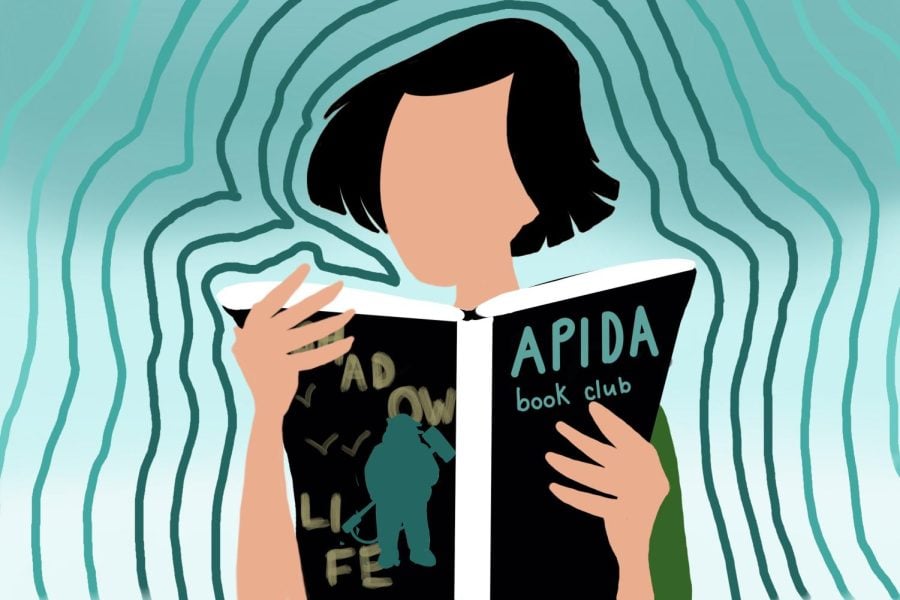APIDA Book Club returns with graphic novel ‘Shadow Life’
The Asian Pacific Islander Desi American Book Club read “Shadow Life” this quarter.
May 7, 2023
Northwestern’s Asian Pacific Islander Desi American Book Club returned after a year-long hiatus just in time for APIDA heritage month.
The club met every quarter in past years, according to Assistant Director of the Multicultural Student Affairs Rignesha Prajapati. But this year, the club selected just one book and will host discussions Thursday and this upcoming Tuesday.
Twenty-seven students who signed up for the club received a hardcover of this year’s book — Hiromi Goto’s “Shadow Life” — for free, Prajapti said. The graphic novel centers around an older Japanese-Canadian woman being followed by the shadow of death.
When Prajapti came into their position in Fall Quarter 2022, they said some students requested the return of the APIDA book club.
Weinberg sophomore and former Daily staffer Sanjana Rajesh was one of those students. She said she wanted to continue to support Asian American writers and continue to create a community around their books.
Prajapati said they aimed to pick “easier” books. “Shadow Life,” a graphic novel, is not as intense of a time commitment as a longer book, they said.
“(Students) don’t have to spend months trying to read and students also really enjoyed that when we were discussing,” she said. “They were like, ‘Yeah, I read that in like two hours.’”
Prajapti said in the past, the Asian American Studies Program faculty and MSA staff picked the book. The club previously read books like Ocean Vuong’s “On Earth We’re Briefly Gorgeous” and Michelle Zauner’s “Crying in H Mart,” One Book One Northwestern’s 2023 choice.
This year is the first that students picked the book, voting among several different options.
Weinberg sophomore Abhi Nimmagadda said while he voted for a different book, he enjoyed the final selection.
“I feel like it was grappling with a lot of questions that were not necessarily existential in a ‘Oh, no, nothing matters kind of a way,” he said. “I was able to get a new perspective on how it is that I wanted to live my life.”
Nimmagadda, a Comparative Literature major, said the book club offered him the chance to read literature by Asian authors. Though APIDA characters are becoming more common in the publishing industry, he said he still rarely comes across Asian stories in literature.
Nimmagadda attended the in-person discussion on Thursday, which had six participants and snacks.
“The discussion was honestly phenomenal,” he said. “It was kind of awkward at first, because none of us knew each other from what I could tell. But as we started talking … Oh my gosh, it just kept flowing because it was like we were all there because we all liked the book.”
The book club let him engage with Asian American literature and learn how other Asian American people see themselves in a world which is not “clearly delineated,” he said.
For Rajesh, books help her learn about experiences and populations different from herself.
“I just looked at this like another way to build community and to meet people who have similar identities to me or have similar interests or want to talk about certain topics,” she said. “An Asian American specific space is a place to talk about Asian American issues and talk about things that impact our community.”
Email: [email protected]
Twitter: @kaavya_butaney
Related Stories:
— The Yappie provides political news for AAPI communities
— Check out these Evanston ASPA Heritage Month events
— Students celebrate AAPI heritage in Chinese class through projects


